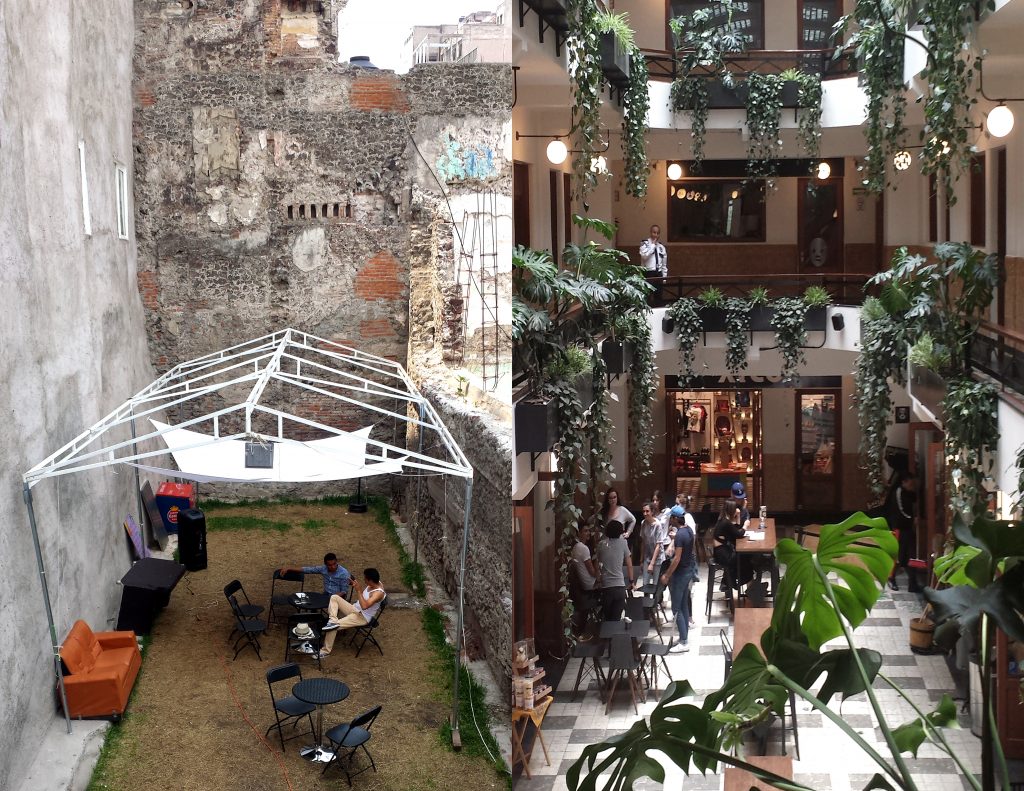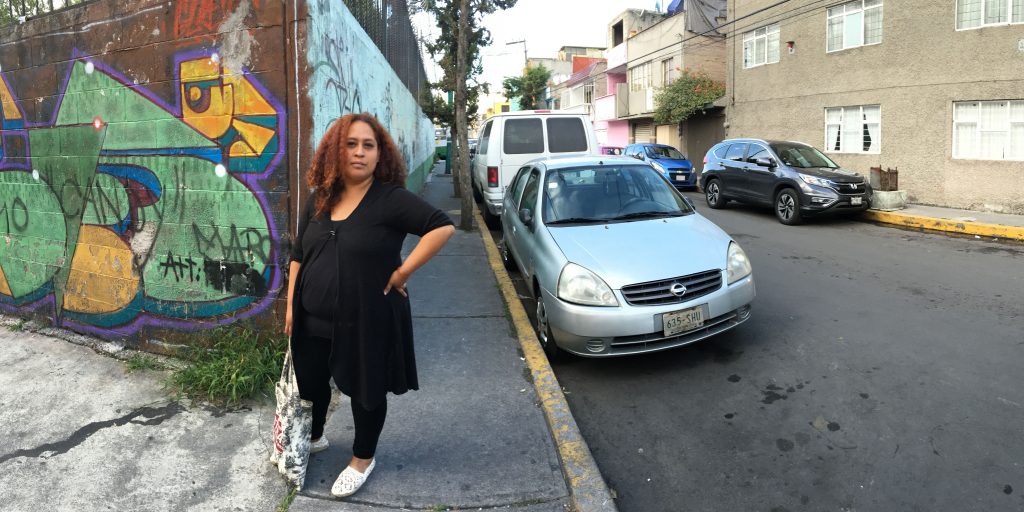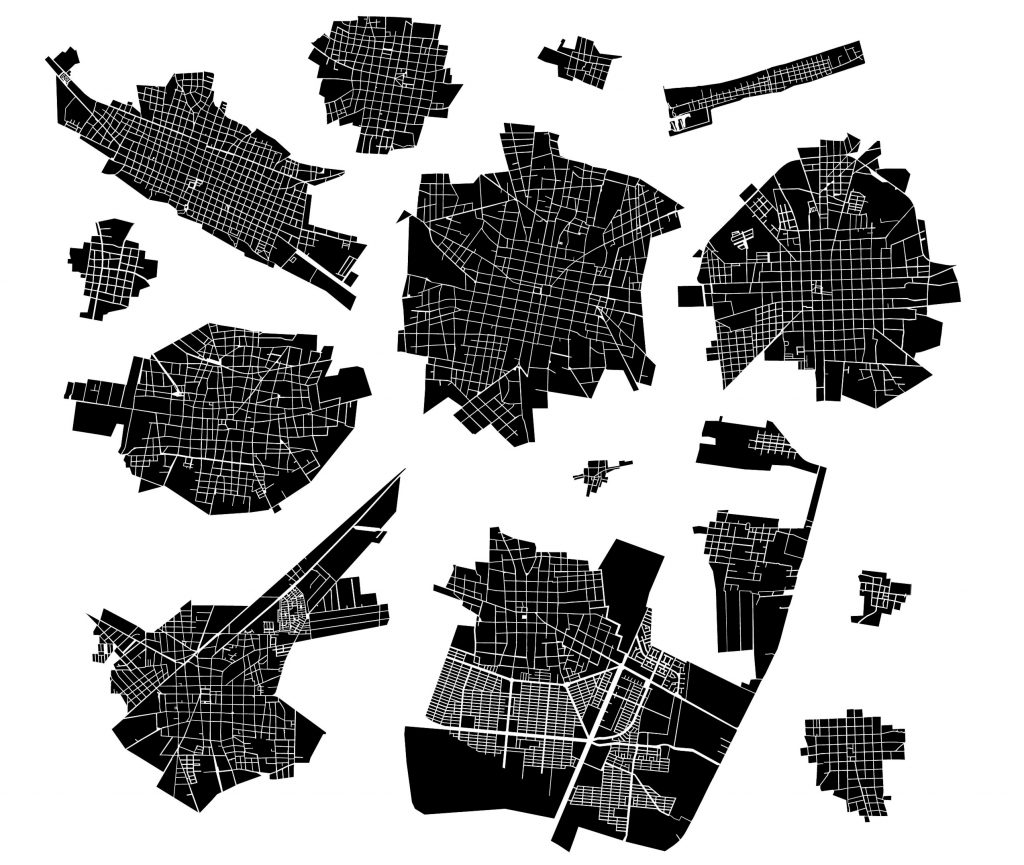2016 Fellows
Inside / Out: A Survey of the Public and Private in Mexico City’s Patios
Semiotics of urban empowerment through the lens of open spaces in Mexico City
Anna Falvello Tomas | John Going
Today, open spaces in Mexico City are becoming increasingly divided in terms of social and economic status. For typical residents of the DF, the traditional element of the private domestic patio is vanishing due to overcrowding while large open public spaces such as the Zocalo are increasingly contested and policed. For the economic elite, however, the patio has remained in the unit of the private home or is available in the form of more exclusive “public” spaces, as many businesses turn their backs away from the street and into patios accessible to those who can pay the price. This phenomenon is resulting in a city where open spaces are often not truly democratic nor all-inclusive, but instead, segregated by purchasing power.
Our project interrogates the semiotics of the semi-public patio typology across a spectrum of uses, economic strata, ownerships, histories, and accessibilities. We not only focus on patios of a more economically exclusive nature, but also on those used by less privileged economic factions as a means of empowerment and growth. Ultimately, the element of the patio, straddling the fine line between public and private in the city, serves as a lens through which to examine greater issues of public open spaces in the DF.
Domestic Labor: The Invisible Paths
Mapping domestic workers’ relationship with the informal processes of empowerment, mobility, and city growth in Mexico City
Luisa Piñeros Sánchez | Rayana Hossain
The investigation situates domestic workers in Mexico City to illustrate the city’s complex narrative of imbalanced power structures, the problematic mobility infrastructure due to the city’s rapid growth, and the determined resilience of these laborers. The project explores the spatial demographics and the daily city paths of these workers through a set of interviews and interchanges with workers who were eager to share their stories. By connecting them, their families, their dwelling places and their labour networks through everyday urbanism, this project maps out their individual stories, the residential zones where they live, their paths through the city, and seeks to understand how work formalization policy and transport networks affect the daily commutes and right to time of these workers. In collaboration with UN Women, ILSB, CACEH, SINACTTRAHO, UNAM, Mapatón, and Aliada, this project also seeks to connect different organizations currently working to empower domestic workers in order to make more visible their current situation as transport users, city immigrants, urban sprawl victims, and women.
Holding It Together: Self-Provision and Institutional Management of Trash and Mobility Networks in Kanasín, Yucatán
Unfolding the institutional and citizen level responses to gaps in the provision of services and infrastructure in Kanasín, Yucatán
Caroline Filice Smith | David Schoen | Juan Santa María | Ruben Segovia
Within a national context of rapid urbanization fueled by under-regulated social housing development and rural-urban migration, state led liberalization and decentralization policies have resulted in severe infrastructural service gaps across Mexico’s urban-periphery municipalities. Kanasín is one such municipality struggling to cope with rapid urbanization propelled by both rural-urban migration and intra-urban migration from the increasingly unaffordable neighboring city of Merida. The study of Kanasín, a municipality, both the second fastest growing and most densely populated urban center in the state of Yucatan, can therefore be taken as a foundational case-study in forming a deeper understanding of the intractable service provision issues faced by municipalities across México.
According to the most recent United Nations “Indice Básico de Prosperidad Urbana” (CPI), the municipality of Kanasín lacks the institutional-level capacity to manage and fund the infrastructural upgrades needed to support its current rate of urban development and population growth. This lack of capacity has led to significant service provision gaps in two key areas: Trash Management and Mobility Networks. In each case the lack of municipal level organization, management, and funding has necessitated alternatives to state service provision; it is therefore the intent of this project to unfold the institutional and citizen level responses to these gaps in services provision as a means of investigating the social and political repercussions of this infrastructural insecurity.
Yucatán Initiative
Informing decision-making through mapping analysis of cultural assets in the Yucatán Peninsula
Alejandro Fernández-Linares García | Alex Duffy | Arianna Galán | Chris Liao | Marysol Rivas Brito
This research aimed to develop a visual dictionary for the cities of the Yucatán Peninsula. The final product seeks to inform stakeholders about the existing built environment of the region as a supporting guide for future urban interventions. Students from Harvard GSD and the Universidad Marista conducted research and gathered data over 5 weeks on a dozen selected cities, developing and feeding a digital platform as well as a publication. The project was also supported by the Baktún Alliance (constituted by “Universidad Marista”, “INAH” – National Institute of Anthropology and History – and “Transformación Arte y Educación”), by Infonavit and by UNESCO.







